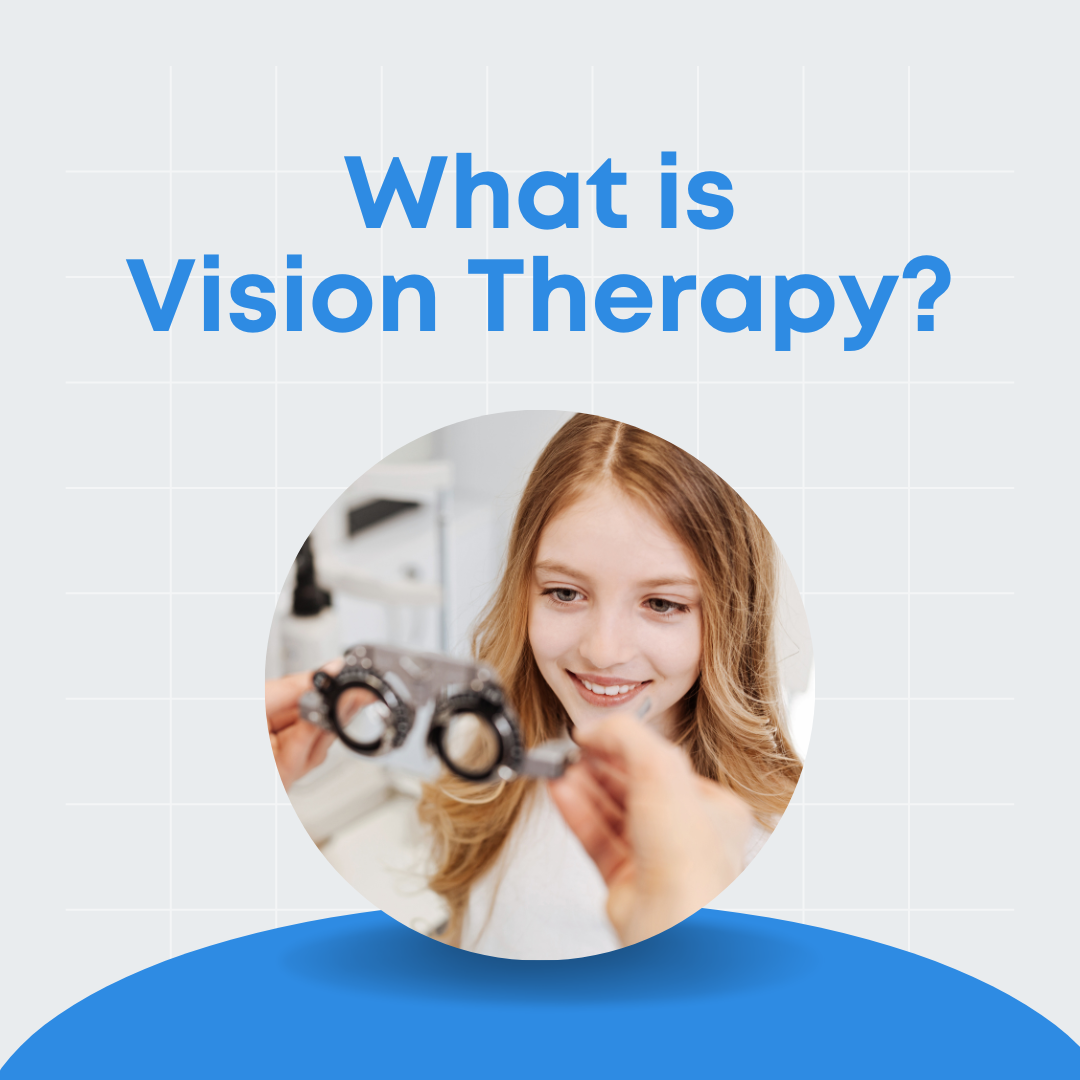Vision therapy is a fully customized and personalized treatment program designed to improve and strengthen visual skills, and re-train your visual system to interpret visual input with increased accuracy and ease. When a person’s visual skills are underdeveloped, damaged, or imbalanced, engaging in vision therapy can help improve these abilities. It’s more than just simple eye exercises — it improves brain-eye communication and the effective operating of your visual system.
There are many conditions that can be treated by vision therapy. Some of these include:
- Ocular motility dysfunctions (eye movement disorders)
- Amblyopia (lazy eye/poorly developed vision)
- Strabismus (misalignment of the eyes)
- Double vision or focus issues
- Eye teaming and tracking problems
- Focusing difficulties
- Eye fatigue
- Depth perception and 3D vision difficulties
- Hand-eye coordination difficulties
- Visual perception and processing issues
If you or your child is diagnosed with any of these conditions, a structured and customized program of vision therapy can improve these abilities. After a thorough screening and evaluation, a customized therapy program is created specifically to address your needs and outline the goals for vision therapy.
You’ll work with a vision therapist, performing guided activities and learning an evolving series of exercises that work to strengthen and develop the visual system and improve skills. Each patient receives “homework” assignments – exercises to practice for about fifteen minutes daily. These exercises enable your visual system to efficiently master the new skills.
Vision therapy programs vary in length, and patients often notice improvements in their work and school performance after a few weeks!
Vision therapy goals
In short, the main goal of vision therapy is to enhance your visual skills— eye-tracking, focusing, convergence, eye-hand coordination, visual processing speed and more! Your specific goals for vision therapy will be outlined in your customized vision therapy plan, and will be reviewed periodically to ensure progress is being made against the goals.
Signs of a learning related vision problem in children
Many children and adults do not realize that their struggles in the classroom and/or workplace are in no way linked to intelligence or how hard they are trying. Instead, they may not be able to visually process the information put before them.
Not knowing the cause of classroom, and later adult life skills problems, can have a detrimental effect on self‐esteem and behavior. Many children labeled as classroom problems can grow into troubled teens
and eventually struggling adults if their visual problems are not diagnosed and treated. One out of four children and seven out of ten juvenile delinquents have a vision disorder that is interfering with their ability to achieve. Parents and teachers should be on the lookout for the following red flags that indicate a vision problem:
- Reading below grade level
- Reduced reading comprehension
- Loss of place, repetition, and/or omission of words while reading
- Confusing similar words, such as ‘was’ and ‘saw’
- Reversing letters such as b, d, p and q
- Spelling difficulties
- Dislikes or avoids homework
- Writing numbers backwards, such as 2 & 5 or 6 & 9
- Difficulty maintaining attention
- Difficulty changing focus from distance to near and back again
- Poor judgment of depth
- Messy handwriting
What to do if you think vision therapy may be a solution for you or your child
Call to schedule a Comprehensive Developmental Eye Exam at (906)228‐4401– it might change your or your child’s life! If you have specific concerns regarding academic performance, or have been diagnosed with a lazy eye (amblyopia) or turned eye (strabismus), please inform us so we can schedule your appointment accordingly.
Information needed:
- Pertinent medical information and records
- Completed initial evaluation packet and symptom checklist, both provided by Superior Eye Health Center. It is available on our website, or we can fax, email or mail it to you.
Once the forms have been completed and returned to us, Dr. Johnson will review and determine what type of exam is needed. Our office will then contact you to set up an appointment!



*Our Wednesday hours may vary. Please call our office for the most up to date information.